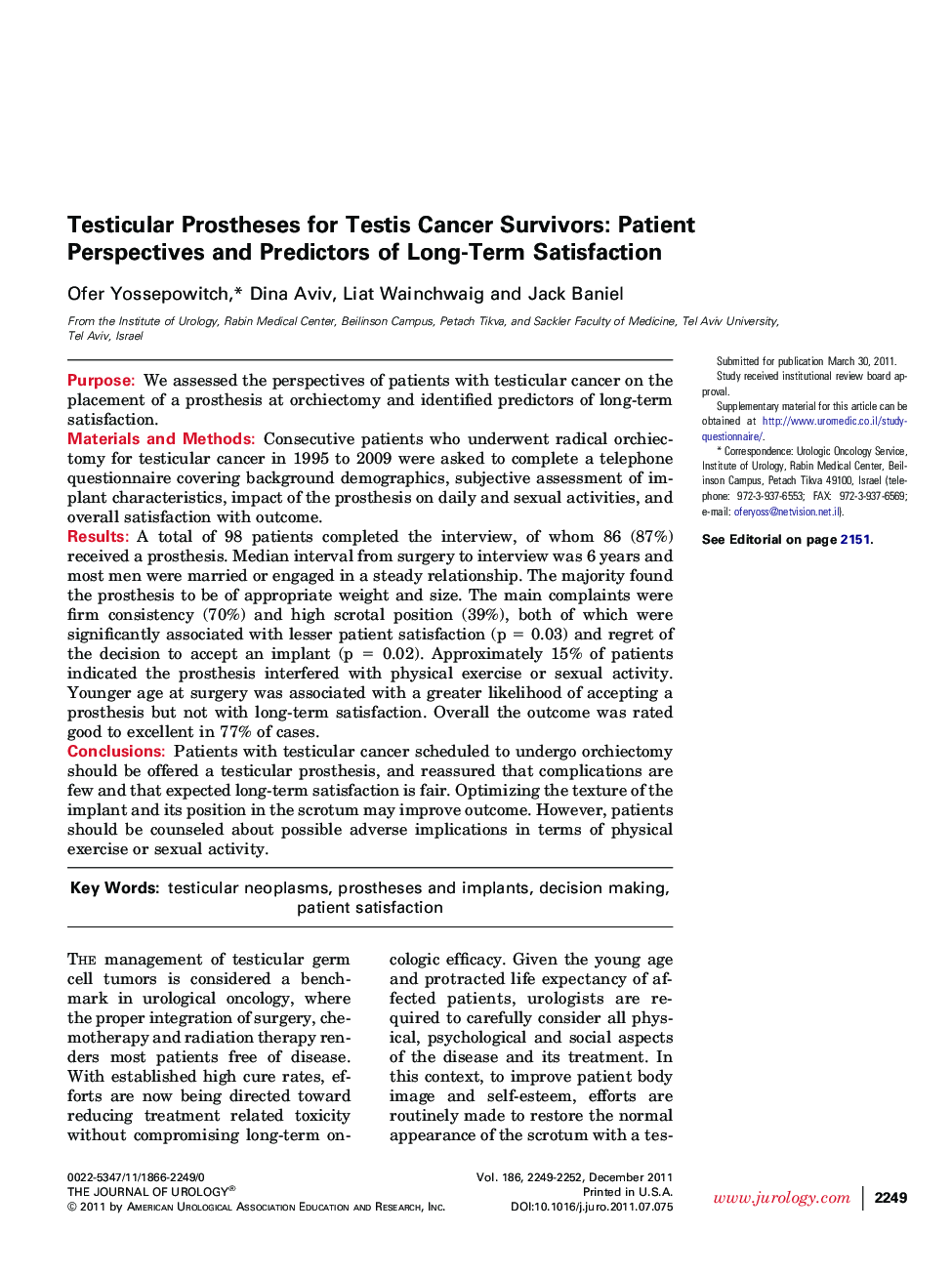| Article ID | Journal | Published Year | Pages | File Type |
|---|---|---|---|---|
| 3870227 | The Journal of Urology | 2011 | 4 Pages |
PurposeWe assessed the perspectives of patients with testicular cancer on the placement of a prosthesis at orchiectomy and identified predictors of long-term satisfaction.Materials and MethodsConsecutive patients who underwent radical orchiectomy for testicular cancer in 1995 to 2009 were asked to complete a telephone questionnaire covering background demographics, subjective assessment of implant characteristics, impact of the prosthesis on daily and sexual activities, and overall satisfaction with outcome.ResultsA total of 98 patients completed the interview, of whom 86 (87%) received a prosthesis. Median interval from surgery to interview was 6 years and most men were married or engaged in a steady relationship. The majority found the prosthesis to be of appropriate weight and size. The main complaints were firm consistency (70%) and high scrotal position (39%), both of which were significantly associated with lesser patient satisfaction (p = 0.03) and regret of the decision to accept an implant (p = 0.02). Approximately 15% of patients indicated the prosthesis interfered with physical exercise or sexual activity. Younger age at surgery was associated with a greater likelihood of accepting a prosthesis but not with long-term satisfaction. Overall the outcome was rated good to excellent in 77% of cases.ConclusionsPatients with testicular cancer scheduled to undergo orchiectomy should be offered a testicular prosthesis, and reassured that complications are few and that expected long-term satisfaction is fair. Optimizing the texture of the implant and its position in the scrotum may improve outcome. However, patients should be counseled about possible adverse implications in terms of physical exercise or sexual activity.
